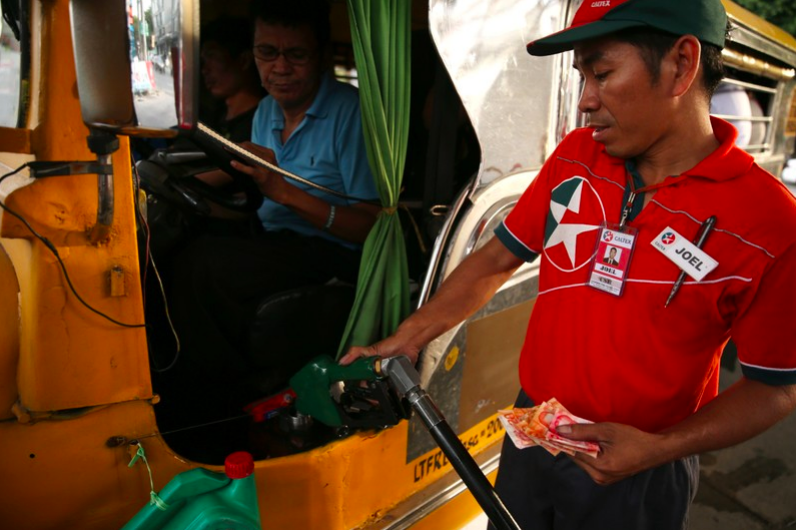Research group IBON said that even with recent oil price rollbacks, the Duterte administration’s Tax Reform for Acceleration and Inclusion law (TRAIN) increases fuel prices with an inflationary effect burdening the poor more than the rich. IBON pointed out that rollbacks have always been proven to be temporary and stressed that TRAIN’s taxes make fuel more expensive permanently. The group underscored that government should do away with regressive TRAIN and decide to tax the rich instead.
This is the eighth consecutive week of oil price rollbacks. Attributed mainly to international oil oversupply, the rollbacks have lowered the net increase from January to December 2018 to Php1.05 for every liter of gasoline, Php2.00 for diesel and Php4.65 for kerosene.
IBON said that fuel prices would be even lower if not for TRAIN. The group noted that comparing average fuel prices in pre-TRAIN December 2017 and in November 2018 shows that pump prices have increased from Php47.94 to Php53.85 for every liter of gasoline; Php35.79 to Php43.05 for diesel; and Php41.52 to Php52.70 for kerosene. Regardless of hikes or rollbacks, said IBON, oil prices are permanently higher because of TRAIN’s excise taxes for 2018 plus value added tax (VAT) on excise totaling Php1.95/2.97 for every liter of gasoline, Php2.80 for diesel, and Php3.36 for kerosene.
The additional consumption levies of the Duterte administration’s TRAIN hence aggravated the burden of making ends meet for the poor majority of Filipino families whose incomes are low to begin with, said IBON. Record inflation set in this year soon after the January implementation of TRAIN. This is estimated to have caused the income of the poorest 60% households to erode by between Php2,500 to Php6,800 during the first ten months of 2018.
Unfortunately, the Duterte administration is even considering to lift the suspension of the next tranche of TRAIN’s fuel excise taxes, said the group. Among others, it noted, this adds another Php9.00, Php4.50, and Php4.00 for every liter of gasoline, diesel, and kerosene, respectively, exclusive of the 12% VAT on excise. Even as the consecutive rollbacks slow inflation, the 2019 set of fuel excise taxes will figure in disrupting the seeming stabilization of prices, and continue to hurt the pockets of the poorest families, said IBON.
IBON said that because of the volatility of global oil prices, it is also too early to say that local prices will remain low. Oil prices could still increase due to possible Organization of Petroleum Exporting Countries (OPEC) production cuts, US sanctions on Iran progressing, and untoward geopolitical events.
The group stressed however that government can moderate the impact of oil prices by doing away with the regressive TRAIN law. It can start by suspending the inflationary taxes of TRAIN, such as those on sensitive products like oil, that is burdening the majority of poor Filipinos already struggling with low incomes and job scarcity, IBON said.
Government should focus on generating higher revenues by pursuing tax evaders and higher direct taxes on the income and wealth of the country’s richest, said the group. These direct taxes will not make consumer goods and services more expensive, IBON concluded. ###




